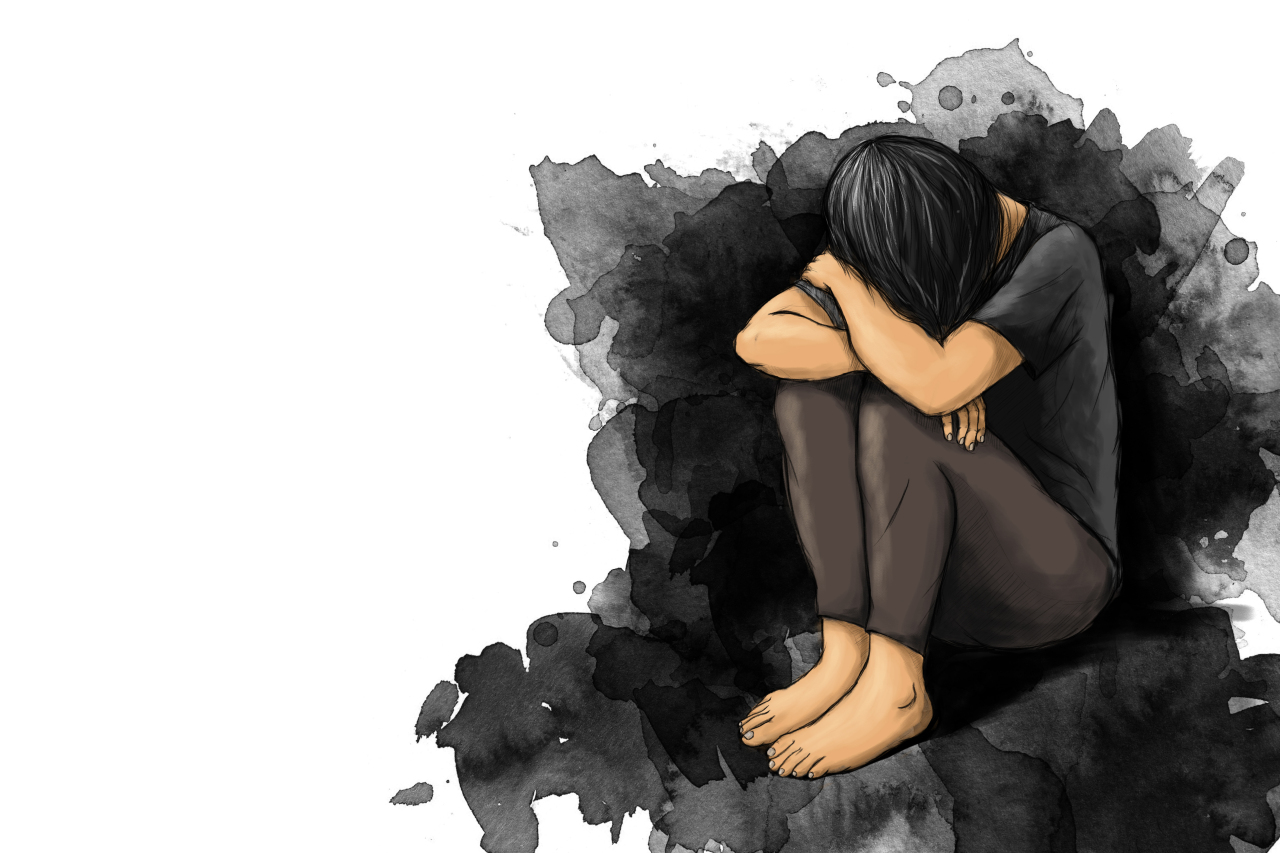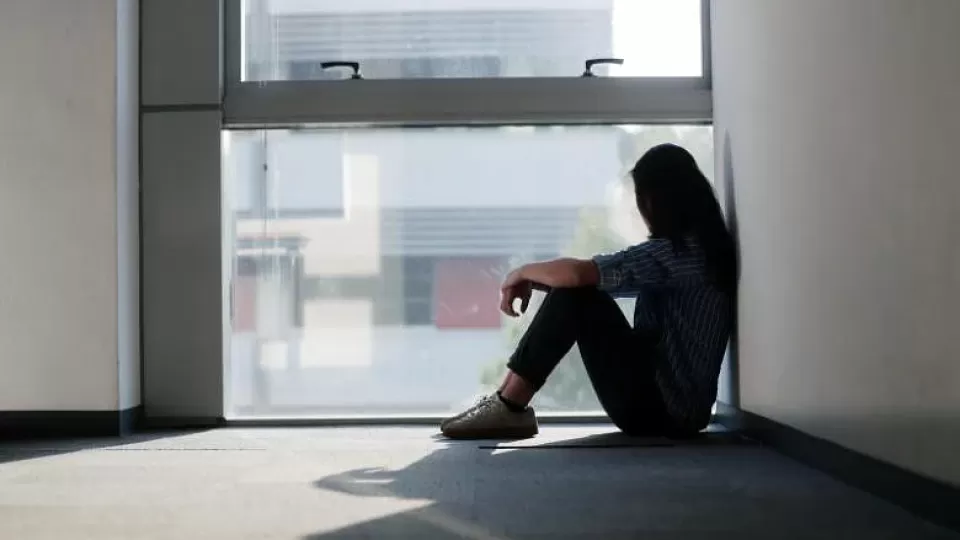August 31, 2022
SEOUL – An empty fridge, a sink full of instant noodle packets, and notices for unpaid bills were what filled the home of a 50-something man in Gangseo-gu, Seoul, who was found dead on June 28.
His passing added to the growing number of lonely deaths in South Korea, where nearly one-third of all households consist of a single person.
Social isolation and loneliness are becoming severe issues in modern society, a problem that ails not just South Korea. In recent years, countries like the United Kingdom and Japan have garnered international attention by launching state-level projects to tackle loneliness.
With an increasing number of one-person households and people feeling alone, should South Korea do what these countries have done and appoint a “loneliness minister?”
Feelings of isolation grow in Korea
According to Statistics Korea, the number of single-person households leaped from 5.39 million in 2016 to 6.64 million in 2021, accounting for 31.7 percent of the overall households in the country. In addition to more people living alone, social distancing during the COVID-19 pandemic era seems to have added to feelings of isolation for Koreans.

(123rf)
A joint survey conducted by Gallup Korea and local newspaper Seoul Shinmun on 1,008 adults across the country last December showed that 45.9 percent of respondents said they felt “more alone” compared to the pre-pandemic era.
A 2021 report by the Statistics Research Institute showed that the feeling of loneliness among men went from 19.6 percent in 2019 to 21.2 percent a year later, while it went from 21.5 percent to 23.4 percent for women. In terms of “subjective well-being” — encompassing factors like contentment with one’s life, finding meaning in life and one’s overall sentiment — there was a substantial difference between those who were socially isolated and those who were not.
In 2018, the Korean Clinical Psychology Association conducted a survey on 317 member psychologists to diagnose how lonely South Koreans are, to which the doctors gave an average of 78 points out of a 100. The respondents picked “increasing individualism” (62.1 percent) as the leading cause of the phenomenon, followed by factors like rising tension between classes and economic slump at 54.6 percent and 48.3 percent, respectively.
In a report conducted the same year by local polling company Hankook Research, 7 percent of respondents said they “consistently feel lonely,” while 19 percent said they frequently felt so. About 41 percent of the single respondents said they frequently or consistently felt lonely, while the figure dropped to 18 percent for couples.
The studies all point to an increasing feeling of loneliness among South Koreans, and other research from across the world indicates this can present an actual health hazard.
Loneliness kills
A number of studies over the years have shown that loneliness can be detrimental to one’s physical well-being.
Earlier this month, the American Heart Association released a scientific statement that social isolation and loneliness may increase the risk of having, or dying, from a heart attack or stroke.
“There is strong evidence linking social isolation and loneliness with increased risks of worse heart and brain health in general,” said Crystal Cene, the chair of the writing group for the statement published in the Journal of the AHA.
The report found a 29 percent increased risk for heart attack or death from heart disease, and a 32 percent increased risk for stroke.
The researchers noted that data on association between the aforementioned factors and other physical conditions like heart failure, dementia and cognitive impairment are sparse and less robust.
A 2020 paper by scholars of public health from Leeds, England, also stressed the correlation between social isolation, loneliness and physical health.
“Social isolation itself increases the risk of all-cause mortality by 29%, while loneliness increases it by 26%, and living alone by 32%. For those under the age of 65 years, the risk to health associated with any of these three is even greater,” the paper noted.
Another 2020 study published in the journal Trends in Cognitive Sciences showed how social isolation can negatively affect the brain’s health and the immune system.
“Social isolation, or a lack of social opportunity, gives rise to a sense of loneliness. Directly or indirectly, this feeling has many wide-ranging consequences for our psychological well-being as well as for our physical health, even our longevity,” the researchers wrote.
“In short, loneliness kills people.”

(123rf)
Should government be involved?
In 2018, then-UK Prime Minister Theresa May created a ministerial lead to tackle the loneliness issue in the country, reacting to Member of Parliament Jo Cox’s commission on investigating ways to reduce loneliness in the country. While commonly referred to as the “minister of loneliness,” it is not a separate ministerial office, but is the responsibility of a junior minister-level official in charge of culture and sports, a role currently held by Sports Minister Nigel Huddleston.
In 2021, the government of Japan’s then-Prime Minister Yoshihide Suga appointed Cabinet member Tetsushi Sakamoto as the nation’s first “minister of loneliness,” entrusted with the task of reducing loneliness and isolation in response to increasing suicide deaths.
The vigilance of the two island nations against loneliness resonates soundly in South Korea, which according to data from the Organization for Economic Cooperation and Development is the most suicidal country among the member states.
As of 2020, the suicide rate — the number of suicides per 100,000 people — for the country was the top among OECD members at 25.4. It was followed by Lithuania and Slovenia at 20.3 and 15.7, respectively. Japan and the UK were 14.6 and 8.5, respectively.
The figure, as depressing as it sounds, actually marks an improvement from 10 years ago, when the country reached an all-time high of 15,906 suicide deaths, compared to 13,195 in 2020.
South Koreans are not yet embracing with open arms the idea of a governmental intervention in the issue of loneliness. Upon the news of the UK’s appointment of a loneliness minister, the aforementioned Hankook Research conducted a poll on whether South Korea should follow suit, and found 46 percent disapproved while 40 percent approved.
Despite the apparent lack of momentum, there are indications that the government could be more involved in the issues of social isolation and loneliness.
On Aug. 23, Reps. Kim Gi-hyeon of the ruling People Power Party and Noh Woong-rae of the main opposition Democratic Party of Korea hosted the inaugural forum on resolving the issue of loneliness and social isolation at the National Assembly.
“Everyone feels loneliness. Emotions that they feel via confrontation with an employer or a co-worker can be a form of social loneliness. Yet those who complain about such issues tend to be looked upon as having problems with social skills or their personality,” said Shin In-chol, assistant professor of urban sociology at the University of Seoul, at the forum, stressing a lack of awareness of the severity of the loneliness problem in Korean society.
“There is a growing demand (among the public) that Korea as a society needs to address the issue of loneliness. There needs to be a discussion about state-level measures (on loneliness) and restoration of social relationships,” Rep. Noh said.
Vice Culture Minister Jeon Byeong-geuk stressed the need for the government’s role in running various culture and liberal arts programs at the community level to tackle social isolation, and vowed that dealing with loneliness and social isolation will be one of the state projects.


